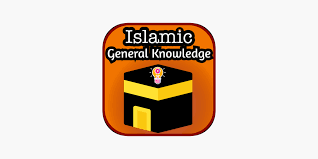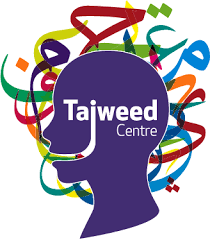Our Classes
We have distinct rules and regulations for our students and those tutoring them. That is why our madrasah remains standard and professional.
We teach With Vision
At DAARUL QURAN ACADEMY
Learn the Deen. Live the Deen. Grow with Daarul Quran Academy.

QUR'AN RECITATION CLASS
Qur’an Recitation (Tilāwah al-Qur’an) is the beautiful act of reading the words of Allah with correct pronunciation and reflection. It is not just a routine practice but a deeply spiritual journey that brings immense rewards both in this life and the hereafter.

QUR'AN MEMORIZATION CLASS
Memorizing the Qur’an is one of the greatest honors a Muslim can achieve. It is not only a spiritual achievement but also a lifetime protection, reward, and a source of blessings in both worlds.

TUHFATUL-ATFAL MEMORIZATION CLASS
1.Foundation in Tajweed Science
It introduces the fundamental rules of Tajweed, such as Ikhfaa, Idghaam, Qalqalah, and more, in a simple and structured way.
2.Enhances Qur’an Recitation
With proper understanding and memorization, students can apply these rules to beautify and perfect their Qur’an recitation.
3.Strengthens Memory Skills
Memorizing classical Islamic poetry improves retention, focus, and cognitive skills.
4.Preservation of Islamic Knowledge
By memorizing this timeless text, students help preserve classical Islamic scholarship and connect with the heritage of great scholars.
5. Prepares for Advanced Tajweed Studies
Tuḥfatul-Atfāl lays the academic foundation for further Tajweed study, including al-Jazariyyah and other advanced texts.
6.Boosts Confidence in Deen
Learning a structured Islamic poem builds confidence and gives students a sense of accomplishment in their religious journey.

GENERAL ISLAMIC STUDIES CLASS
Our General Islamic Studies course is designed to provide students with a well-rounded foundation in the core teachings and practices of Islam. It covers essential topics every Muslim must know, in a way that is age-appropriate, interactive, and easy to understand.
WHAT STUDENTS WILL LEARN?
1.Pillars of Islam and Iman
Understanding the 5 pillars of Islam and the 6 articles of faith.
2. Seerah (Life of the Prophet Muhammad ﷺ)
Learning about the biography of the Prophet ﷺ, his character, and his mission.
3.Akhlaq (Islamic Manners and Character)
Developing good behavior, respect for others, honesty, patience, and responsibility.
4.Islamic Etiquette and Daily Duas
Practical Islamic manners for eating, greeting, cleanliness, and basic daily supplications.
5.Introduction to Fiqh and Worship
Learning how to make wudu, pray, fast, give zakah (at a basic level), and more.
6 Stories of the Prophets and Companions
Inspirational lessons from the lives of past Prophets and the Sahabah.
7.Basic Islamic History
An overview of how Islam spread, key events in early Muslim history, and the legacy of Islamic civilization.
BENEFITS OF THE CLASS
Builds strong Islamic identity and love for the Deen
Encourages good behavior and moral excellence
Strengthens basic knowledge needed for every Muslim
Prepares students for more advanced Islamic studies
Makes Islam relevant to daily life and challenges

FIQHU BASIC ISLAMIC (Jurisprudence) CLASS
1.Understanding Daily Worship
Fiqh teaches students how to correctly perform prayers (Salah), wudu (ablution), fasting, Zakah, and Hajj according to Islamic guidelines.
2.Living According to the Shari’ah
It helps students make informed decisions in daily life that align with Islamic values—such as in food, clothing, social dealings, and family matters.
3 Moral and Ethical Development
Fiqh promotes a strong sense of personal responsibility, cleanliness, and respect for others—building a disciplined and righteous Muslim character.
4. Clarification of Halal and Haram
Students gain clarity on what is permissible (halal) and prohibited (haram), helping them avoid sinful actions and live a pure life.
foundation for further Islamic Studies
A solid grasp of basic Fiqh prepares students for deeper studies in areas like Islamic law, comparative jurisprudence, and Islamic ethics.
developing a Strong Islamic Identity
It builds confidence in practicing Islam correctly and defending Islamic practices with knowledge and wisdom.

TAWHEED CLASS
1 Strengthens Faith (Iman)
Tawheed builds a strong foundation of unshakable belief in Allah, which is the core of Islam and the key to salvation in the Hereafter.
2 Purifies Worship
It teaches students to worship Allah alone, avoiding shirk (associating partners with Allah), and helps them practice sincere ibadah (acts of worship).
3 Deepens Understanding of Allah’s Names and Attributes
Learning Tawheed increases love, fear, and hope in Allah by helping students understand His beautiful names (Asma’ul Husna) and attributes.
4 Guides Behavior and Intentions
A strong belief in Tawheed shapes a Muslim’s actions and intentions, helping them live with sincerity, humility, and taqwa (God-consciousness).
5.Foundation for All Islamic Knowledge
Tawheed is the first pillar of Islam and the basis upon which all other knowledge and practices in Islam are built.
6 Brings Peace and Purpose
Knowing that Allah alone controls all affairs gives the student a sense of peace, purpose, and reliance on Allah (tawakkul) in all situations.
7.Protects from Misguidance and Innovation
It helps students distinguish between authentic Islamic beliefs and false ideologies or innovations in religion.

ARABIC CLASS
1 Language of the Qur’an
Arabic is the original language of the Qur’an, and understanding it helps students connect directly with Allah’s words without relying solely on translations.
2 Improves Salah and Worship
Learning Arabic enhances concentration in prayers (Salah) and makes du’as (supplications) more meaningful.
3.Strengthens Islamic Identity
It connects students to their Islamic heritage, culture, and the language spoken by the Prophet Muhammad ﷺ and his companions.
4.Better Understanding of Islamic Knowledge
Many essential Islamic texts — including Hadith, Tafsir, and Fiqh — are in Arabic. Knowing the language opens the door to deeper learning.
5 Boosts Memorization and Pronunciation
Arabic improves the ability to memorize the Qur’an and pronounce verses and supplications correctly, especially with Tajweed.
6 Builds a Foundation for Advanced Study
Even a basic Arabic course lays the groundwork for advanced Islamic education, scholarly pursuits, and comprehension of classical texts.
7. Universal Language of the Muslim Ummah
Arabic unites Muslims globally, giving learners the ability to communicate and relate to Muslims from different countries and backgrounds.

HISNUL-MUSLIM MEMORIZATION CLASS
Hisnul Muslim (Fortress of the Muslim) is a collection of authentic daily duas (supplications) from the Qur’an and Sunnah. Memorizing these duas strengthens a Muslim’s connection with Allah in all moments — whether waking up, praying, traveling, eating, or facing difficulties.
Benefits of Memorizing Hisnul Muslim
1.Connects You to Allah Throughout the Day
By memorizing daily duas, you learn to remember Allah in all situations — morning, night, happiness, sadness, ease, and hardship.
2. Spiritual Protection
These duas act as a spiritual shield against evil, fear, anxiety, and harm — just as the Prophet ﷺ taught his companions to recite them for protection.
3.Follows the Sunnah of the Prophet ﷺ
Every supplication in Hisnul Muslim is based on authentic hadiths, helping you live your life according to the Sunnah.
4.Improves Memory and Confidence
Consistently memorizing and practicing duas strengthens your memory and builds confidence in reciting Arabic supplications with understanding.
5 Builds a Habit of Dhikr (Remembrance)
Memorizing Hisnul Muslim develops the habit of constant remembrance (dhikr) — which brings peace to the heart and increases blessings.
“Verily, in the remembrance of Allah do hearts find rest.”
(Surah Ar-Ra’d 13:28)
6. Essential for Every Muslim’s Daily Life
These duas cover everyday activities — such as waking up, eating, entering the bathroom, dressing, traveling, and more — making Islamic etiquette a natural part of life.
7.Great for Children and Beginners
Hisnul Muslim is a simple and practical entry point for young students and new learners who want to start memorizing important parts of Islam.
8. Helps in Teaching and Leading Others
When you memorize these duas, you can teach your children, family, or students, becoming a means of continuous reward (Sadaqah Jariyah).
OUR RULES AND REGULATIONS FOR STUDENTS
Daarul-Qur’aan Mutmaheen Academy and Online Qur’anic School
To ensure a respectful, productive, and spiritually beneficial learning environment, all students and parents/guardians are required to follow the rules below:
1.Punctuality and Attendance
Students must attend all classes on time and regularly.
Repeated lateness or absenteeism without a valid reason may result in suspension from the institute.
2.Learning Environment
Students must attend classes in a quiet, distraction-free environment.
Cameras may be required to remain on during class for better interaction.
Headphones are recommended for clearer listening.
3.Class Participation
Students must actively participate, complete assignments, and respect the teacher’s instructions.
Parents of younger students are encouraged to monitor their child’s progress.
4 Islamic Manners and Dress Code
All students must observe proper Islamic etiquette during classes.
Modest Islamic dress is required, especially in video classes.
5.Class Schedule and Changes
Any requests to reschedule classes must be made at least 24 hours in advance.
Missed classes without prior notice will not be made.
6.Fees and Payment
Fees must be paid on time at the start of each month.
Non-payment may lead to temporary suspension until cleared.
7.Discipline and Respect
Rudeness, foul language, or disrespect to teachers or fellow students will not be tolerated.
Students may be warned or removed from the institute if this continues.
8.Communication
Parents and students can communicate with the admin only through the official WhatsApp numbers or email for any inquiries or support.

OUR RULES AND REGULATIONS FOR TEACHERS
Daarul-Qur’aan Mutmaheen Academy and Online Qur’anic School
(1) Teaching Conduct & Ethics
All teachers must fear Allah, uphold Islamic manners, and be role models in character, dress, and speech.
Teachers must maintain professionalism, patience, and respect toward all students, parents, and colleagues.
Never engage in unnecessary personal discussions with students or parents.
Avoid backbiting, arguments, or un-Islamic behavior during class.
(2) Class Preparation & Attendance
Classes must begin on time and end as scheduled. Punctuality is strictly required.
Inform the admin at least 24 hours in advance in case of absence or emergency (except in urgent situations).
Teachers must be well-prepared for each class with a clear lesson plan.
(3) Dress Code & Environment
Male teachers must dress modestly (e.g., thobe or neat clothing).
Female teachers must wear full Islamic hijab and teach from a private, quiet space.
The teaching environment must be free from distractions, music, and background noise.
(4) Interaction with Students
Maintain strict gender boundaries (e.g., female teachers should teach female students or kids only, unless permitted).
Do not accept or initiate private chats outside official channels (e.g., Zoom, Telegram Groups) without admin consent.
Use respectful and clear language—do not shout, insult, or humiliate any student.
(5) Reporting & Communication
Teachers must submit:
Daily Assignments For Students
Monthly progress summaries (for Hifz & Tajweed students).
All communication with parents must go through the Admin or assigned coordinator.
Any issue or misconduct by a student should be reported to the management, not handled personally.
(6) Confidentiality & Data Protection
All student data, contact details, and class recordings are confidential and must not be shared or used for personal purposes.
Teachers are not allowed to offer private classes to Madrasah students.
(7) Content & Teaching Tools
Only approved Qur’an, Tajweed, and Islamic studies materials should be used.
Do not teach unverified or controversial content.
Use only official platforms (Zoom, Google Meet, Skype) for all sessions.
(8) Performance & Evaluation
Teachers will be evaluated based on:
Class punctuality
Student performance
Parent feedback
Adherence to rules
Repeated negligence, misconduct, or complaints can lead to warnings, salary deduction, or termination.
(9) Salary & Commitment
Teachers are expected to:
Commit to their scheduled classes long-term.
Provide 2 months notice before resignation.
Salary will be paid monthly after fulfilling all teaching and reporting duties.
(10) General Code of Excellence
Teachers are ambassadors of Qur’anic knowledge. You must always aim for Ikhlaas (sincerity), Ihsaan (excellence), and Adab (manners) in your work.

